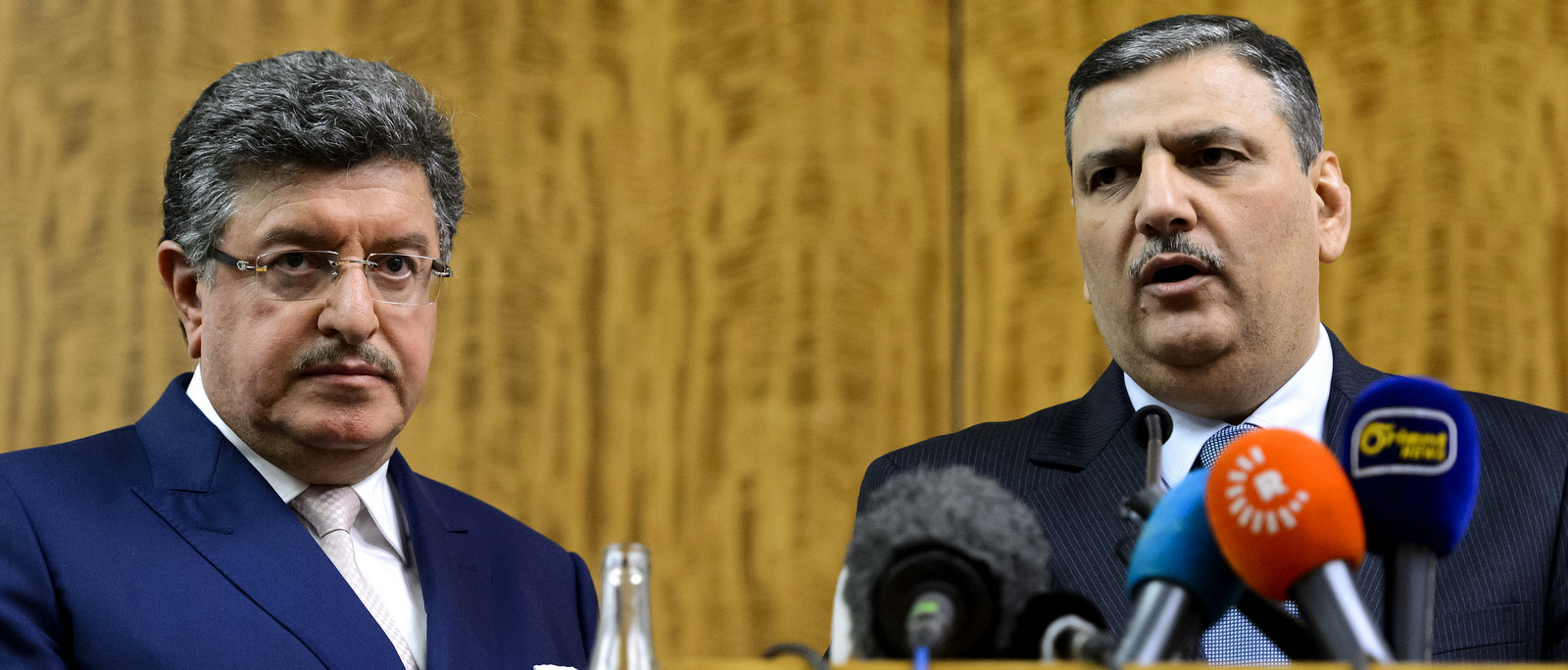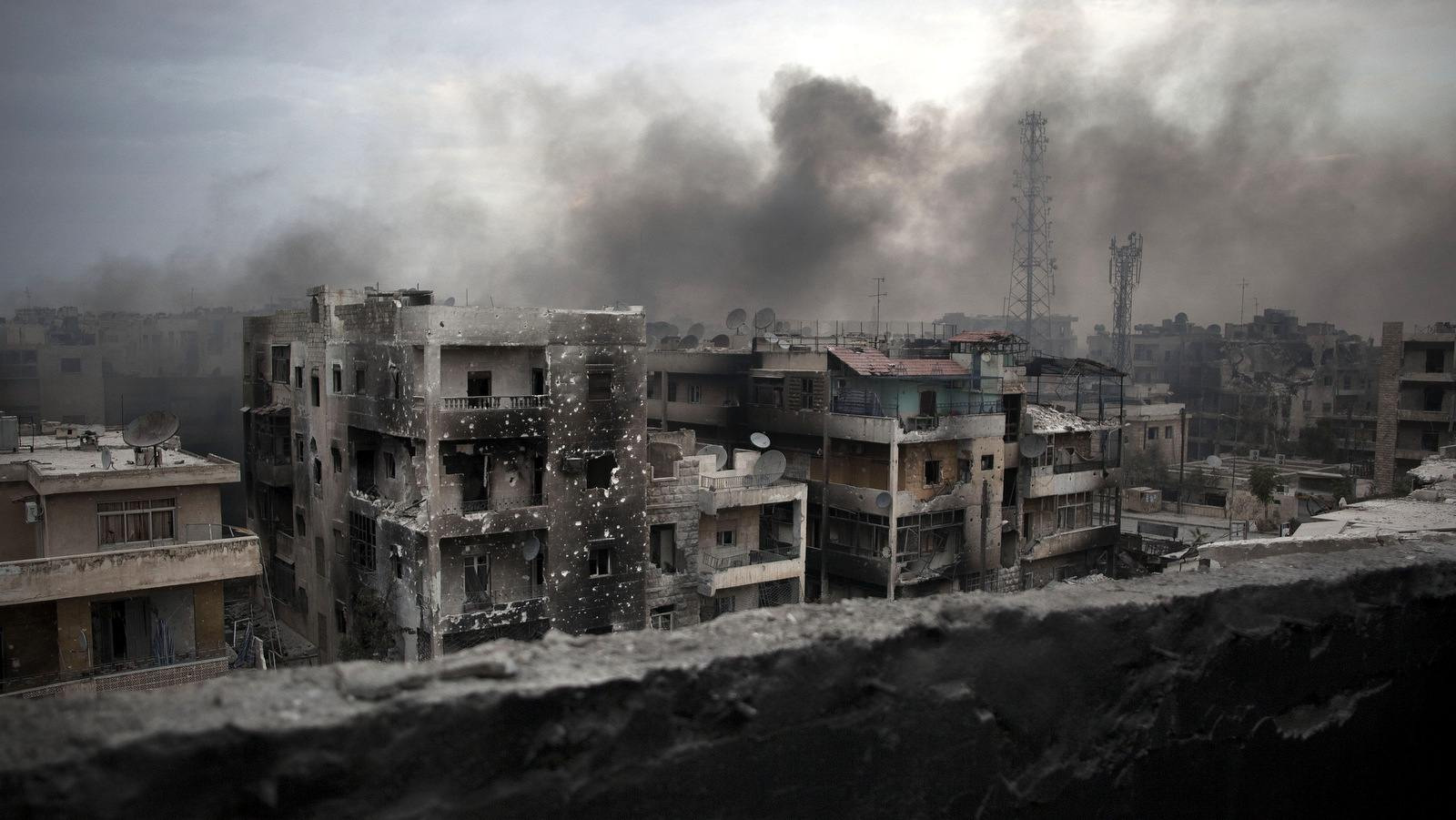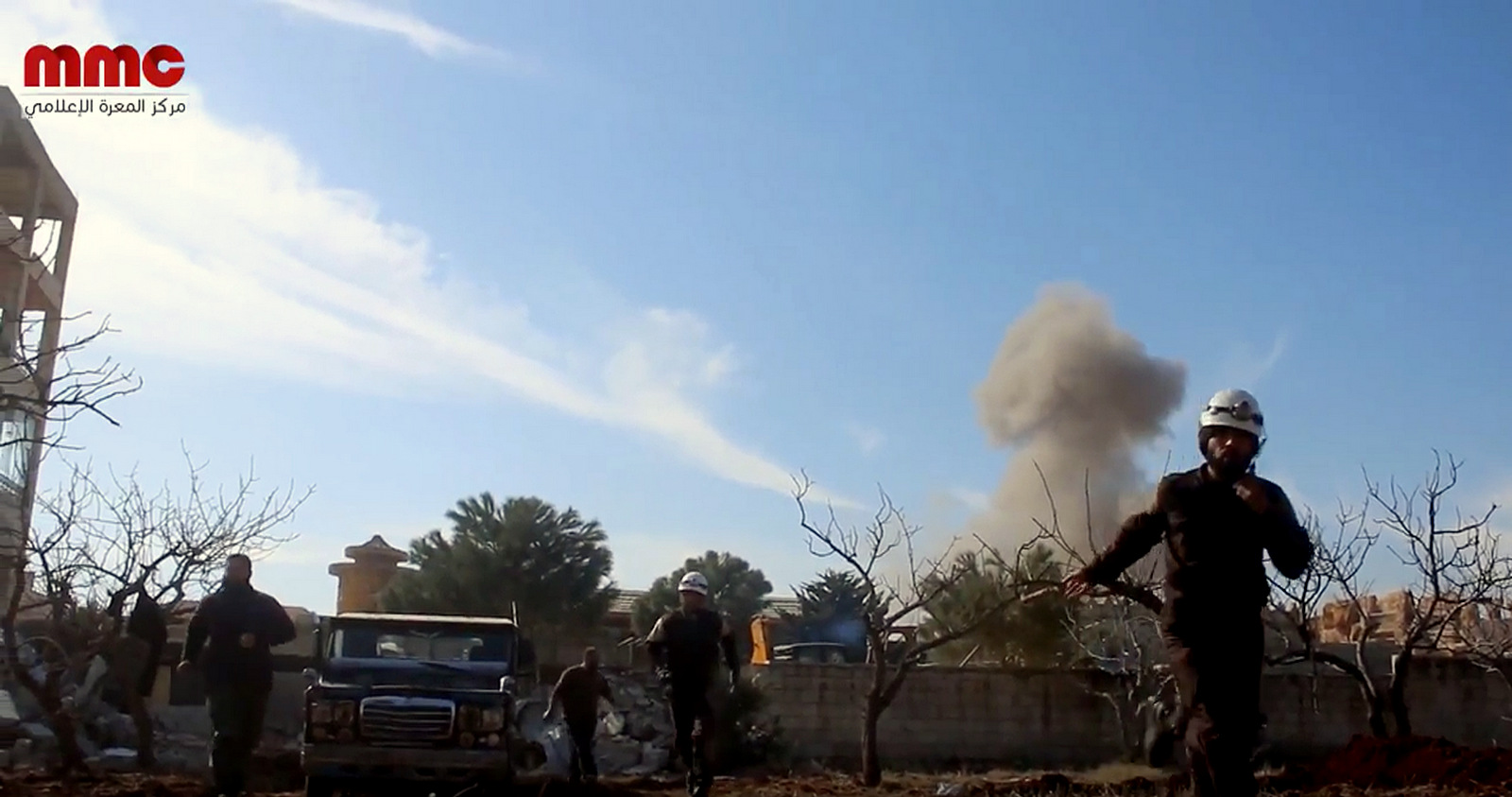When peace talks were arranged to put an end to the years-long Syrian crisis, there were some questionable parties slated to sit at the negotiating table in Geneva.
Before those talks were postponed in February as fighting escalated in Syria, media buzzed, describing theSyrian opposition leading the talks as “moderate.” Yet there was little mention of who these groups really are, who’s behind them, and their agenda beyond “get rid of Assad.”
The Syrian opposition leading the talks is known as the Syrian High Negotiations Committee — a carefully crafted, non-descript banner, for sure.
That coalition is more complex than its name indicates: It aims to unite the thousands of opposition fighters. But those following the situation in Syria know very well that the Syrian opposition is now mostly made up of armed jihadists vying for power and who have been acting as proxies to Saudi Arabia, Turkey and Qatar since 2011 to overthrow the Syrian government.
Many of these “moderate” rebels have ripped Syria apart through sectarianism and violence. And they’ve done it all with weaponry and financial support from competing proxy nations. Further, intelligence officials from NATO member states like the US., Britain, France and Turkey were on the ground, training so-called “moderate” rebels months before the Syrian revolt erupted.
And to top it all off, this coalition to unite these foreign-supplied rebels is Saudi-backed and -sponsored. It wasn’t born in Syria; it was assembled in Riyadh.
The chief negotiator and the spokesperson for the High Negotiations Committee and the groups they represent should raise even more concern:
Salem Muslet, who worked as deputy director for the Gulf Research Center in United Arab Emirates from 1998-2011 (the year the Syrian revolt started), is the vice president of the National Coalition of Syrian Revolution and Opposition Forces, which receives weapons and funding from a list of nations including U.S., Great Britain, France, Germany, Italy, Turkey, Egypt, Jordan, Saudi Arabia, Qatar, and the United Arab Emirates.

Syrian opposition chief Riad Hijab, right, standing next to High Negotiations Committee (HNC) spokesman Salem al-Meslet, left, as they attend a press conference after Syrian peace talks, at the President Wilson hotel in Geneva, Switzerland, Wednesday, Feb. 3, 2016. (Martial Trezzini/Keystone via AP)
The group was formed in Doha, Qatar, not Syria, to provide its “international donors with a legitimate, unified channel for all aid to the rebellion by acting as a moderate umbrella group… to govern Syria after Assad is ousted.”
The group’s first president, Sunni Cleric Moaz al-Khatib, described that as meaning they are beholden to their foreign backers.
Al-Khatib resigned in March 2013, lamenting that, foreign powers were placing too many conditions on aid to opposition and armed rebel groups, and were trying to manipulate events for their own interests.
Meanwhile, Mohammed Alloush ,the chief negotiator, represents Jaysh al-Islam. An open ally of al-Qaida’s arm in Syria, the Nusra Front, Jaysh al-Islam is one of the most brutal Sunni Salafist rebel groups operating inside Syria. And it receives funding, arms and other support from Saudi Arabia.
Jaysh al-Islam, also known as the Islamic Front, is known for mass executions, use of starvation as a war tool (as seen in Madaya), kidnappings, pillaging and alleged rapings. They’ve publicly stated that once they oust Assad, they’ll proceed to cleanse the nation of Shiites, Alawites, Kurds, Zoroastrians and Arab Christians as they establish a Salafist Islamic state. It’s no wonder the group has been compared to ISIS.
With the talks postponed, it doesn’t even matter whether they proceed as long as negotiators are working with violent armed groups and rebels like those under the umbrella of the High Negotiations Committee. Besides being counterproductive, it’s the same policy NATO members and the U.N. have adopted in Libya, Somalia, and Afghanistan, among others. And in each of those cases, those efforts sunk these nations further into civil war and chaos.
The High Negotiations Committee, and the groups it represents, work in the interests of foreign nations, not in the interests or the will of the Syrian people.
Don’t misunderstand — Syria is in desperate need for peace talks.
The ongoing crisis has led to the deaths of over 250,000 people and 11 million refugees. Syrians are in the impossible position of having to choose between living in a warzone, being targeted by groups like ISIS and competing rebels groups and the Syrian government’s brutal crackdown, or whether to fare dangerous waters to reach safety.

Smoke rises over a battle-scarred Saif Al Dawla district in Aleppo, Syria, on October 2, 2012. (AP Photo)
But anything resembling “peace” talks simply cannot proceed with jihadists and representatives of foreign nations with a blatantly genocidal, apocalyptic vision for the future of the country.
If our leaders truly care about ending terrorism maybe they should start by not participating in it.
And if our leaders truly care about democracy and freedom, then they’d allow the Syrian people choose their own fate without supplying weapons and meddling in their affairs. Maybe, for once, they’d even put people before profits.
Like most peace talks, the goal isn’t ultimately peace. These talks represent little more than political theater to subdue the masses against the tragic situation that we — Western governments and the Gulf Arab nations — allowed to unfold.
 Geostrategic Media Political Commentary, Analysis, Security, Defense
Geostrategic Media Political Commentary, Analysis, Security, Defense






You must be logged in to post a comment.